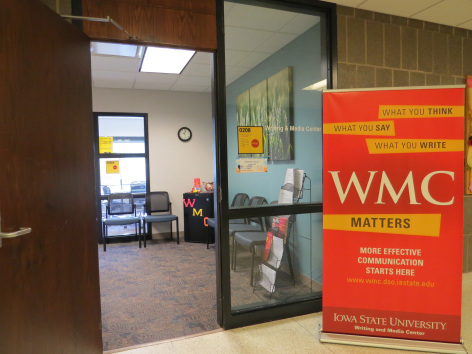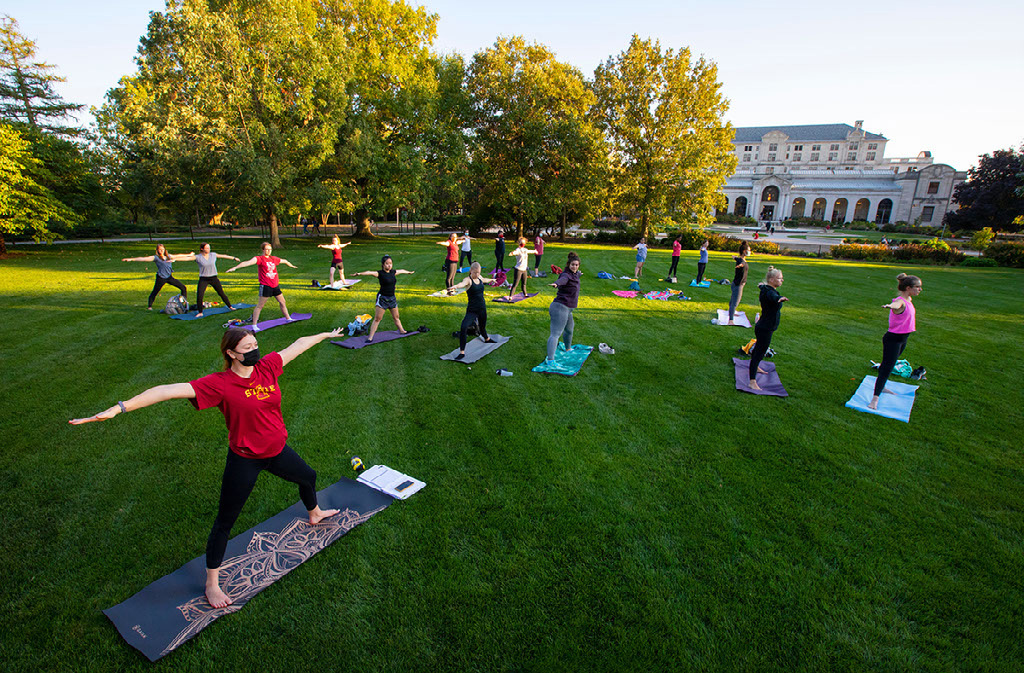
Socially distanced recreational events kept students moving and healthy throughout the first year of the pandemic. Photo by Christopher Gannon
By Angie Hagerty, College of Liberal Arts and Sciences
It takes a village to help students navigate a global pandemic—and hundreds of Iowa State staff have worked hard to help students be well and overcome tremendous challenges during the first year of COVID-19. They’ve dedicated countless hours to developing new programs and virtualizing existing services.
As a result, a wide range of student needs have been met—from managing emotions and honing study skills—to forging new friendships and locating virtual yoga classes.
Four wellness departments join forces
“It’s crazy to think that it’s been almost a year since the university’s Emergency Operations Team came together,” said Director of Student Wellness Brian Vanderheyden. “There has been a great deal of time, effort and teamwork that went into providing students with support and services during these unprecedented times.”
Four departments make up Iowa State’s broader Student Health and Wellness unit: Student Counseling Services, Student Wellness, Recreation Services and Thielen Student Health Center.
Although these departments function independently, creative synergies between these staffs enable them to plan, share ideas and better serve students. The pandemic provided an on-ramp for these departments to deliver quality wellness services to Iowa State’s 31,825 students.
Last year, initiatives from the collective Student Health and Wellness unit generated an astounding 150,000 student interactions. Vanderheyden credits Iowa State’s “no wrong door approach” with fueling higher participation.
“The four wellness departments operate as one collective staff with ‘open doors’ across units, and we’re constantly referring students to well-being resources across units,” he said. “We try to foster a collaborative-care mindset, so we’re always connecting students to the services that fit their needs.”
Student Counseling Services
A recent Healthy Minds study revealed that 80% of college students experience negative mental health impacts; with 20% reporting significant worsening of their mental health during the pandemic.
“This pandemic has impacted all of us in significant ways, and our services were pivotal during this time of stress and uncertainty,” said Christopher Hanes, director of Student Counseling Services (SCS). “It was important for SCS to maintain operations throughout the pandemic and provide effective and accessible mental health services which support student academic success.”
As students were sent home and social-distancing became the norm, SCS counselors quickly adapted by retraining and earning TeleMental Health Certifications. Since July, they’ve provided 4,481 telehealth counseling sessions with students.
In addition to scheduled counseling sessions, the department offers self-service wellness tools that empower students to address their wellness needs in a self-guided format.
No appointment is necessary to access Therapist Assistant Online, a private library of behavioral health resources which features interactive exercises, educational modules and self-assessments that help students strengthen life skills, bounce back from disappointments and overcome obstacles. A new YouTube Channel offers videos on wellness topics, such as stress management, grief therapy and maintaining mental health during quarantine and isolation.
Thielen Student Health Center
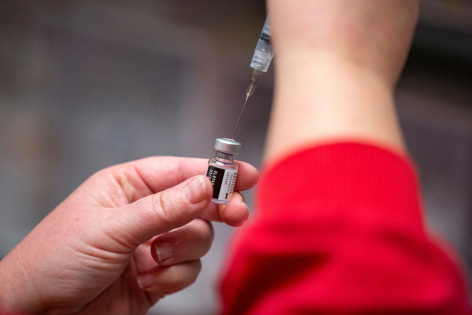
The pandemic generated many new student health needs, including vaccinations and testing. Photo by Christopher Gannon
During fiscal year 2020, the Thielen Student Health Center completed more than 339,000 patient visits, serving 39% of Iowa State students
In-person operations continued year-round for students with illnesses, injuries and ongoing health issues. After students left campus in March, the team transitioned to offering both in-person and telehealth appointments for wellness, primary care, psychiatric services and physical therapy. Both telehealth and in-person appointments were available in August, as students returned to campus for the fall semester.
Options and flexibility were important during the pandemic and the student health center provided both.
“We needed to maintain a sort of normalcy for students and it was important that students had a place to turn for healthcare needs while they navigated the pandemic,” said Erin Baldwin, director of the Thielen Student Health Center and associate vice president for student health and wellness. “Our role was a critical part of keeping campus healthy, both physically and mentally.”
To ensure safety, the clinic team modified clinical procedures, following university and CDC guidelines. They learned COVID-19 testing techniques and quickly secured personal protective equipment, such as medical masks, gowns, gloves and face shields—to meet high demand and prevent shortages.
Student Wellness
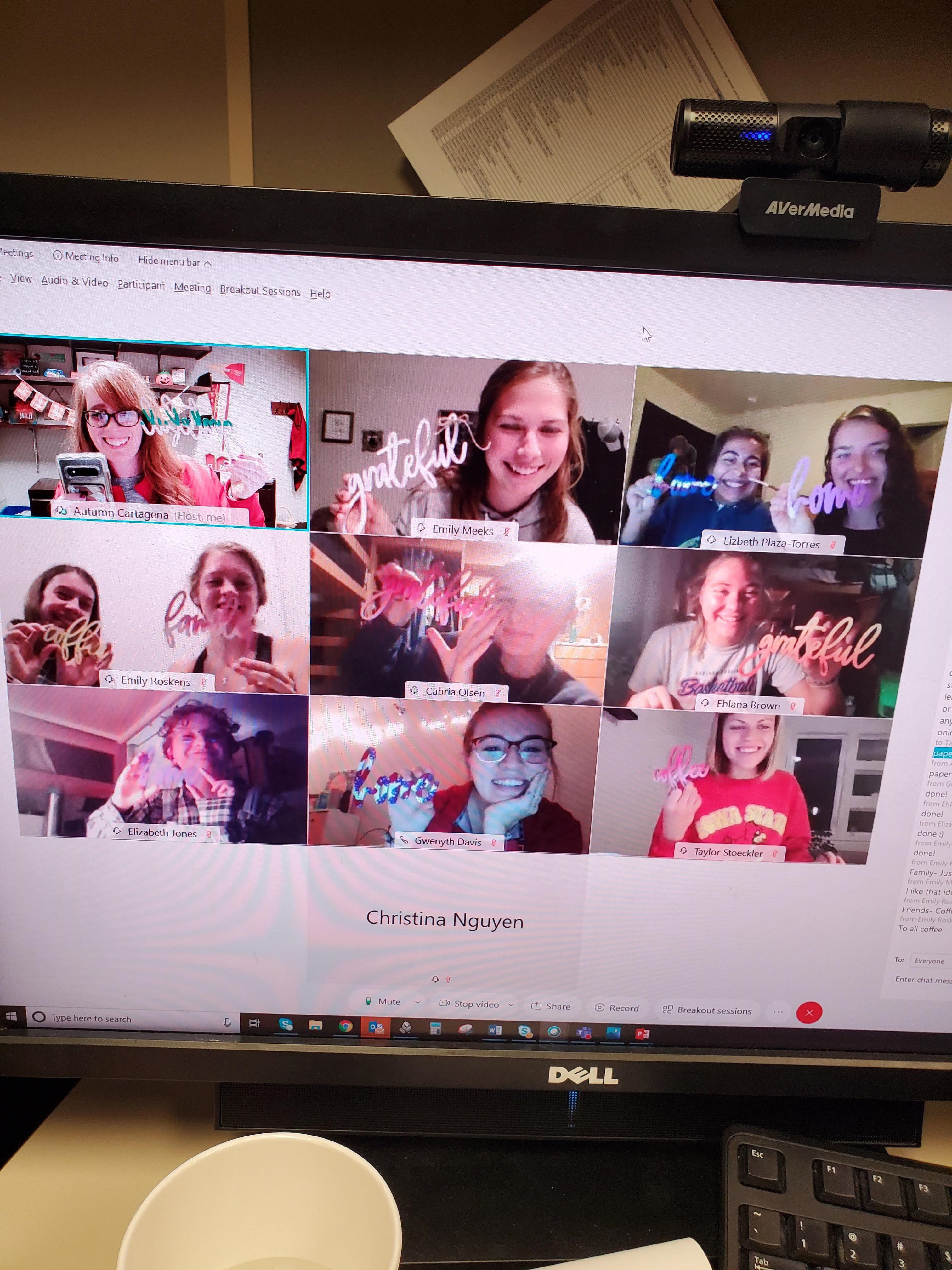
Safe, online activities allowed students to remain connected to peers and build community. Submitted photo
Vanderheyden and his staff in the Student Wellness Department provide quality programs that typically occur in-person. However, the team pivoted to virtual, online and video formats in March. They also expanded choices that met university and CDC physical-distancing guidelines.
Student Wellness created social media campaigns, including the “Keep Community, Stay Informed, Be Well” initiative, which garnered 65,000 student interactions. The unit also promoted popular wellness programs to address healthy eating habits, substance abuse prevention, holistic health, mindfulness, sleep hygiene and so much more.
Maya Tydlacka-Hammeken (’21 child adult and family services) enrolled in Sleep Well, a four-week, self-guided program focused on improving student sleep with an interactive app.
“I learned a lot about my sleeping patterns and the app was very convenient for tracking my sleep every day,” she said. “I found it helpful that I could check my insomnia symptoms, browse through sleep rules and review how to relax my body.”
Vanderheyden said that positive experiences like Tydlacka-Hammeken’s are a testament to Iowa State’s commitment to student health and wellness.
“We want to meet students where they are and plug them into the programs that will help them to succeed academically at Iowa State,” he said.
Recreation Services
When Iowa State’s campus shut down last March, in-person programs at Recreational Services came to an abrupt halt. Days later, Gov. Kim Reynolds issued a Proclamation of Disaster Emergency in Iowa.
These actions closed all Iowa fitness centers for several weeks.
“Even though our buildings closed, our services never stopped and we never stood still,” said Michael Giles, director of Recreation Services. “In fact, a shutdown meant that we had to get real creative, real quick to continue serving students.”
Within two weeks, Recreation Services offered online Fitness On-Demand classes, including yoga, Pilates, core, barre and others. Intramural and club programs pivoted out of in-person modes.
While most recreation sports programs were on hold, esport offerings were expanding. In March, multi-player gaming and esports spiked to record levels that remain today. An esports and gaming room, in Beyer Hall, is set to open spring 2021 and will feature 30 desktops and four console gaming stations.
Giles and his team were busy with a flurry of changes during the summer. Competitive sports clubs, such as rugby and lacrosse, involving weekly practices and game travel, had to be revamped for the fall.
“We threw our energy into planning and pivoting,” Giles said. “It’s not like you turn around the next day and resume services and open your buildings.”
Fitness equipment and machines in several facilities had to be spaced apart. Proper pandemic protocols were put in place.
Recreation Services resumed in-person services on June 15.
“We’ve put a lot of emotional, physical and mental effort into making our services work for students during the pandemic,” said Giles. “We’ve had to do things that have never been done before and we worked hard to keep Iowa State students moving and active.”
Connection through community
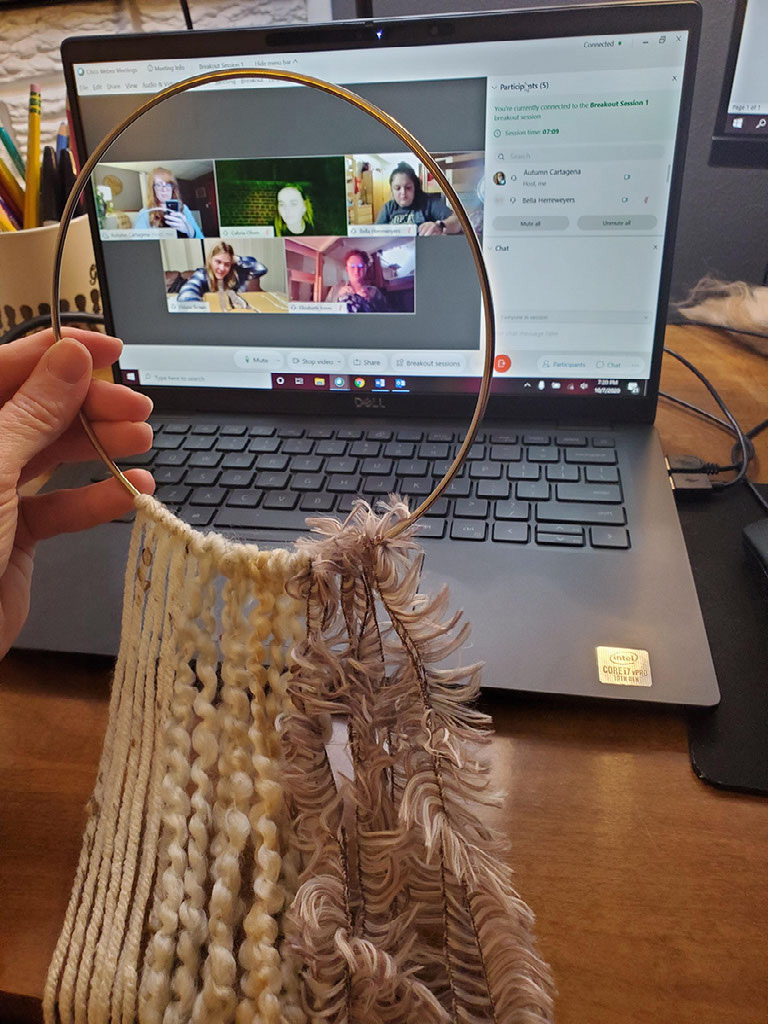
Students in the HOME learning community meet virtually to socialize and create a macramé craft. Submitted photo
Iowa State’s 93 learning communities connect students who share common interests, academic pursuits or backgrounds. These small groups make big impacts on students, their well-being and on the university.
Learning communities help students to build supportive networks that foster meaningful connections to Iowa State, which support student retention and graduation rates.
“Our data show that our average 6-year graduation rates are 11% higher, and our average one-year retention rate is 7% higher, for learning-community participants,” said Jennifer Leptien, director of Iowa State’s learning communities. “The work of our learning community teams is critical, and it’s why we worked hard to shift these communities to virtual formats and hybrid experiences during the pandemic.”
Faculty members coordinate the learning communities. Upper-division students like Alex Leffel (’22 chemistry) become peer mentors who serve as learning community leaders, role models and event organizers.
Leffel, a peer mentor for the Chemistry Learning Community, developed programming which encouraged students to participate in undergraduate research.
“Through hybrid and virtual presentations, we helped students to understand that COVID-19 doesn’t have to be a roadblock to getting started in undergraduate research,” Leffel said.
Inspired by COVID-19 safety measures, the group made hand sanitizer using aloe vera gel, isopropyl alcohol and scented essential oils. They also tie-dyed white lab coats during a fun activity which took place in a large research lab, to ensure proper social distancing.
The pandemic sparked creativity in many Iowa State learning communities.
HOME, an open-option learning community for students in the College of Liberal Arts and Sciences, organized a week of programming that included virtual cookie decorating, socially distanced yoga and a WebEx group macramé project. The Software Engineering Learning Community used a Slack Channel for communication and connection, and a Minecraft server to practice coding while building community.
“The Minecraft activity illustrates how learning communities can connect students to places where they already want to be, where they’re connected to their future work and future interests,” Leptien said.
After pandemic travel restrictions prevented 58 international students from traveling to Ames to begin their first semester at Iowa State, a new learning community was born. The International Adventure Learning Community (IALC) virtually connected students from 20 countries and four continents. IALC provided a virtual bridge which connected these students to campus and to fellow international students who were also completing their courses from home.
Many of those international students will arrive on campus this spring and fall, to attend classes in person.
Supporting students before they fall through the cracks
The pandemic has saddled many Iowa State students with job losses, financial challenges and food insecurity. These hardships often hinder academic progress and instill barriers that prevent students from remaining in college and completing degree programs.
Fortunately, Iowa State offers programs and services to ease those burdens.
The SHOP
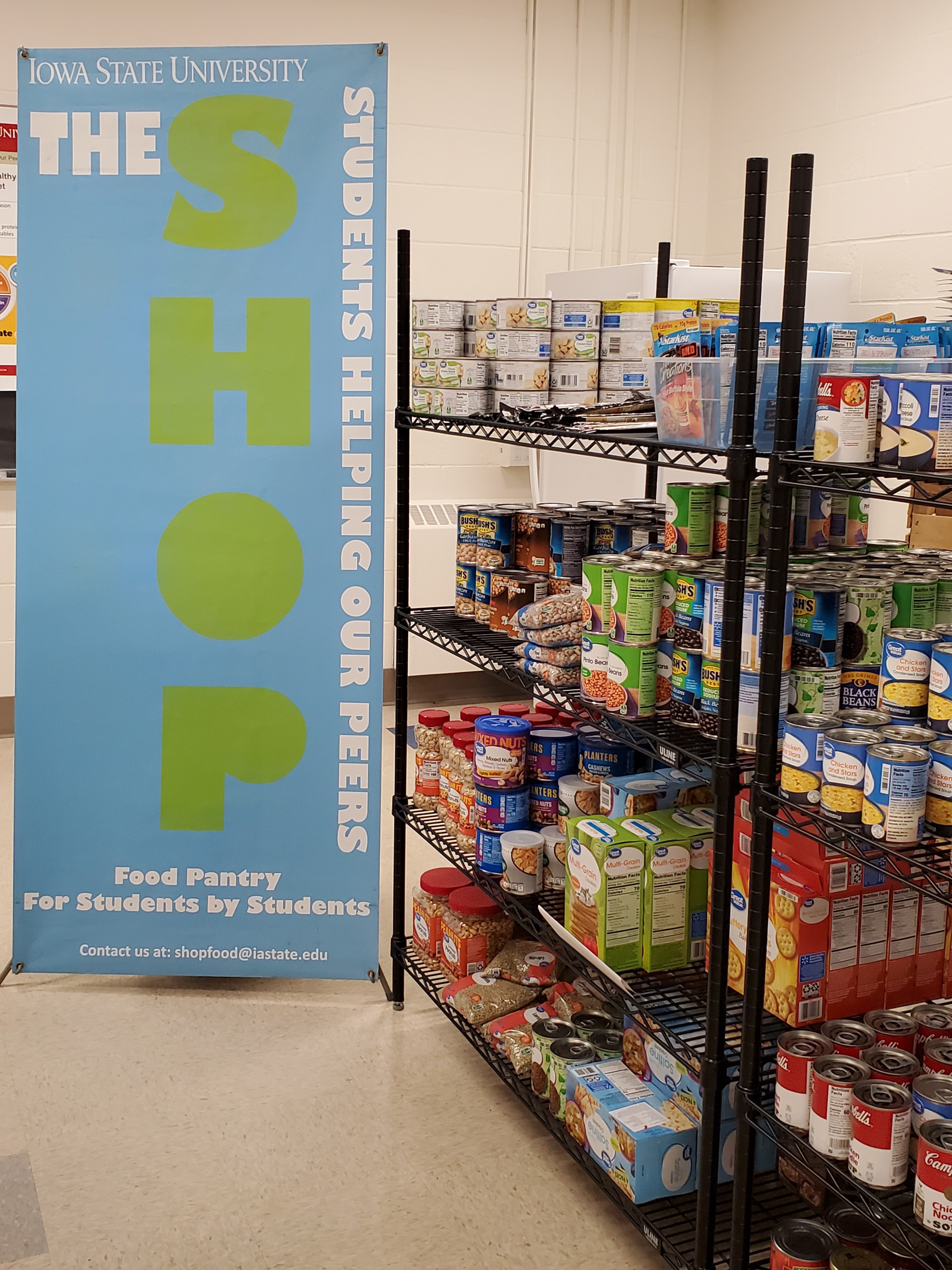
The SHOP provides a variety of free fresh and shelf-stable foods to students. Need sharply increased during the COVID-19 pandemic. Submitted photo
Iowa State’s student-run, on-campus food pantry, The SHOP (Students Helping Our Peers), provides free food to students. The program serves about 1,000 students each semester and is powered by donations and an army of student volunteers.
Volunteers overhauled The SHOP ordering processes to optimize safety during COVID-19. Visitors can select items and place orders using their mobile devices. Volunteers fill and bag orders which are picked up via contactless delivery.
“It’s kind of like Instacart,” said Breanna Wetzler, The SHOP staff advisor who oversees the student executive board and program volunteers. “The volunteers have worked hard to serve students and implement safe practices.
The SHOP also offers in-person, socially-distanced services. Up to three people are allowed to shop, during 20-minute increments.
As the pandemic increased demand for The SHOP services, the organization moved to an expanded location in Beyer Hall. With an assist from Student Wellness, The SHOP purchased a freezer and refrigerator in December and is now offering fresh food options.
“I’m especially proud of the students who manage and run the program,” Wetzler said. “These students have worked hard and they’ve never turned away any student.”
This spring, The SHOP’s 150 volunteers plan to improve inventory-control and ordering processes to better serve Iowa State students.
LAS Success Grants
As students lost part-time jobs and income due to the pandemic, many struggled to afford tuition, food and other essentials.
In 2017, an Iowa State alumnus stepped forward with a generous donation. This sparked the creation of the LAS Success Grant program, which allows students experiencing financial hardship to apply for grants. Awards have ranged from $250 to $1,500, depending on each student’s circumstances and financial need.
Kent Kerby, assistant dean and adjunct professor of genetics, development, and cell biology, serves as one of the program administrators.
“Students who receive these awards are truly touched by the kindness of our donors,” Kerby said. “They are moved to work harder, to achieve their goals and to work through their challenges, allowing many students to succeed through stressful times, and also during the pandemic.”
The LAS Success Grant program has awarded over $187,000 to 177 students. The program also provides financial counseling, resource referrals and personalized guidance.
“This is about who we are at Iowa State and also who our alumni are,” Kerby said. “This community is full of kind, giving people. It’s astounding how many people reach back to help the university and its students move forward.”
